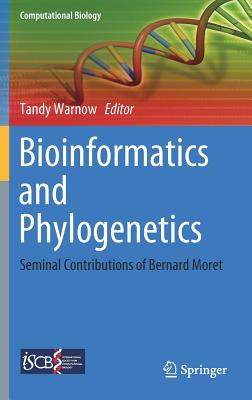相關主題
商品描述
The increasing availability of molecular and genetic databases coupled with the growing power of computers gives biologists opportunities to address new issues, such as the patterns of molecular evolution, and re-assess old ones, such as the role of adaptation in species diversification.
In the second edition, the book continues to integrate a wide variety of data analysis methods into a single and flexible interface: the R language. This open source language is available for a wide range of computer systems and has been adopted as a computational environment by many authors of statistical software. Adopting R as a main tool for phylogenetic analyses will ease the workflow in biologists' data analyses, ensure greater scientific repeatability, and enhance the exchange of ideas and methodological developments. The second edition is completed updated, covering the full gamut of R packages for this area that have been introduced to the market since its previous publication five years ago. There is also a new chapter on the simulation of evolutionary data.
Graduate students and researchers in evolutionary biology can use this book as a reference for data analyses, whereas researchers in bioinformatics interested in evolutionary analyses will learn how to implement these methods in R. The book starts with a presentation of different R packages and gives a short introduction to R for phylogeneticists unfamiliar with this language. The basic phylogenetic topics are covered: manipulation of phylogenetic data, phylogeny estimation, tree drawing, phylogenetic comparative methods, and estimation of ancestral characters. The chapter on tree drawing uses R's powerful graphical environment. A section deals with the analysis of diversification with phylogenies, one of the author's favorite research topics. The last chapter is devoted to the development of phylogenetic methods with R and interfaces with other languages (C and C++). Some exercises conclude these chapters.
商品描述(中文翻譯)
隨著分子和基因數據庫的日益普及以及計算機性能的增強,生物學家有機會解決新的問題,例如分子演化的模式,並重新評估舊的問題,例如適應在物種多樣化中的角色。
在第二版中,本書繼續將各種數據分析方法整合到一個靈活的界面中:R 語言。這種開源語言可用於多種計算機系統,並已被許多統計軟體的作者採用作為計算環境。將 R 作為系統發育分析的主要工具將簡化生物學家數據分析的工作流程,確保更高的科學重複性,並促進思想和方法論的交流與發展。第二版已全面更新,涵蓋自五年前首次出版以來市場上推出的所有相關 R 套件。還新增了一章關於演化數據的模擬。
進化生物學的研究生和研究人員可以將本書作為數據分析的參考,而對進化分析感興趣的生物資訊學研究人員將學習如何在 R 中實現這些方法。本書首先介紹不同的 R 套件,並為不熟悉此語言的系統發育學家提供 R 的簡短介紹。基本的系統發育主題包括:系統發育數據的操作、系統發育估計、樹狀圖繪製、系統發育比較方法以及祖先特徵的估計。樹狀圖繪製的章節使用 R 的強大圖形環境。一個部分涉及使用系統發育分析多樣化,這是作者最喜愛的研究主題之一。最後一章專注於使用 R 開發系統發育方法及與其他語言(C 和 C++)的接口。這些章節以一些練習作為結尾。











